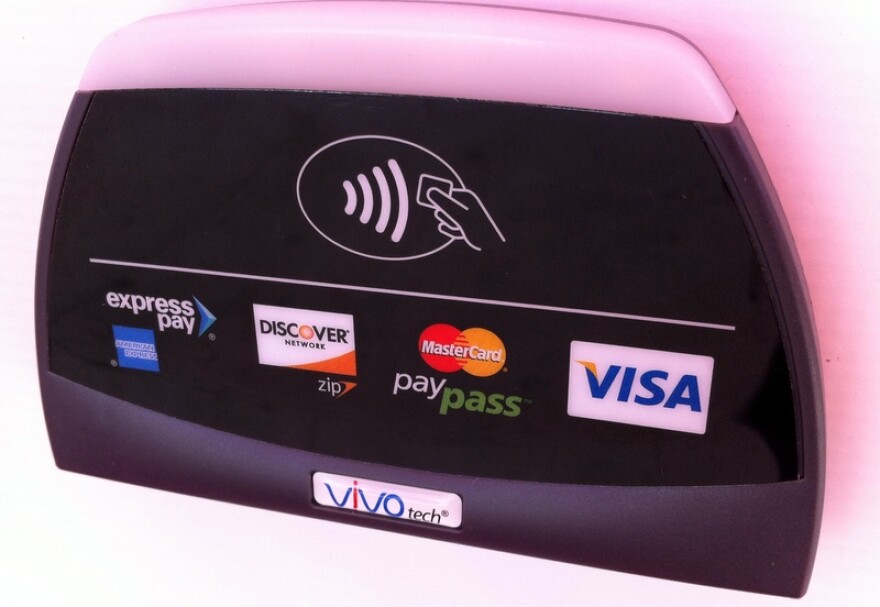It sounds like the setup to a joke: “AT&T, Verizon, and T-Mobile walk into a bar …”
But it’s no laughing matter. Despite the fact that each company devotes itself almost entirely to beating the other two in the highly-competitive mobile market, the three companies have created a new “mobile payment” venture – Isis – that launched today in Austin.
Mobile payments, also called “digital wallets,” allow purchasers to buy products and services using a phone-based app at the point of sale, instead of with credit cards, cash, or checks.
Merchants that accept Isis payments are a mix of big-box retailers, fast food restaurants, department stores, and local merchants.
Verizon’s Regional President for Austin, Frank Antonacci, led the kickoff event today at a Verizon Wireless store. He says Isis picked Austin as a pilot city (along with Salt Lake City), because of Austin’s history of adopting new technologies. “Austin has a great history of being open to technology as well as having some really great places to shop,” Antonacci said.
The Isis technology works on phones that are NFC enabled. NFC is a very short range radio technology that allows the phone to communicate with a credit card terminal. Currently there are nine phones that work with Isis. Apple’s phones do not use NFC, so the Isis system won’t work with the iPhone.
Isis’s technology requires customers to have a SIM card, supplied by Isis, that fits into a slot in the phone. The SIM card contains what the company calls the “secure element.”
Google is one of many companies currently developing mobile payments systems. It reportedly began developing a SIM card-based system but abandoned it in favor of a cloud-based system, Google Wallet, that does not require any special hardware.
Walmart, Target, and other big retailers are creating their own mobile payment system called MCX.
Apple has announced a product called Passport that organizes many wallet items like loyalty cards and airplane tickets, but at this point does not plan to offer transaction capability.
Other players who have created or announced plans to create a mobile payment system include Amazon, Sprint, every major credit card company, Starbucks, PayPal, Square, and a large number of smaller startup companies.
It’s not clear why so many companies are pushing hard into this space, when, so far at least, there’s no indication that consumers want it. Consumers in the United States charge almost $2-billion dollars each year on their credit cards. That system seems to be working just fine.

